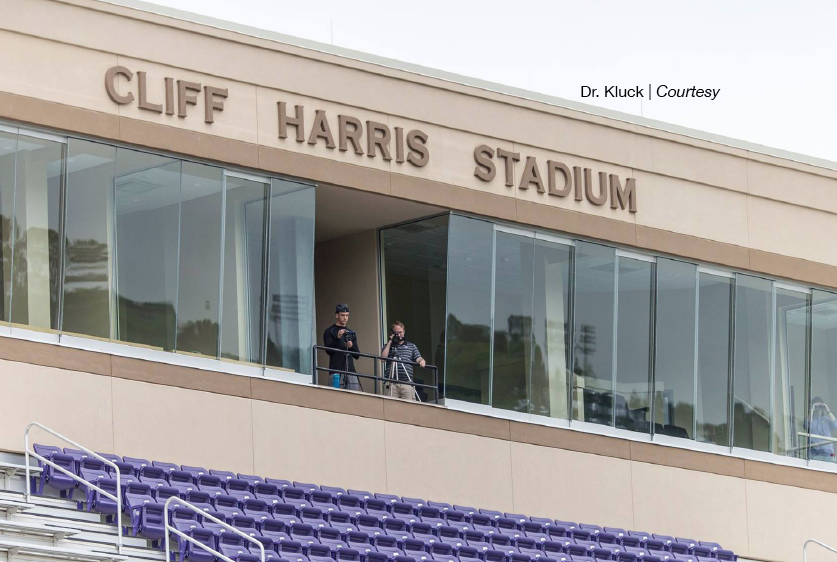 If anyone else was like me on Saturday, they watched as Johnny Manziel sat out his mandated first half suspension of the Rice game only to come off the bench and throw three touchdown passes in the second half.
If anyone else was like me on Saturday, they watched as Johnny Manziel sat out his mandated first half suspension of the Rice game only to come off the bench and throw three touchdown passes in the second half.
While his performance was succesful, his post-play antics created serious controversy among many football enthusiasts.
Following his success off the sideline, his immaturity showed out much more than his achievements. In fact, Kevin Sumlin, the Aggies head coach, yanked him out of the game after he received an excessive celebration penalty for taunting.
This trailed his mocking of Rice defensive player Mike Evans with a flawless “show me the money” hand gesture and signing the air at the Rice defense.
It is apparent Manziel thinks he’s untouchable-and rightfully so. Recently, he got in trouble with the NCAA for signing autographs for a sports vendor that would sell them.
However, the NCAA concluded they didn’t have substantial evidence and suspended him for half a game.
Most college football fans believe he dodged a major bullet. But, as a long-time, avid enthusiast of college football I think there is something more to this story.
First of all, the punishment doesn’t fit the crime. Either he did it or he didn’t. If he did in fact sign autographs for money, that would result in a major suspension as we have seen in the past with similar cases.
If he didn’t do it, then there shouldn’t have been any punishment whatsoever.
But instead, the NCAA and Texas A&M claimed his innocence yet sat him out for half of a football game. I don’t get it.
Second, the NCAA, Texas A&M and Johnny Manziel sat down to talk about this, which took six hours.
How many ways can you ask someone if they signed autographs for money? If you’re wondering what all happened in those six hours, you’re in good company.
The reality is this: the NCAA shows serious inconsistency among its suspensions. Just ask Dez Bryant.
He had dinner with Deion Sanders, lied about it for fear of getting in trouble and then had to sit out a large majority of his senior season.
He was considered by many to be the best receiver in college football and was a front-runner for the Heisman Trophy. He lost all of it for having dinner with Deion Sanders. Other recent suspensions show more inconsistency.
AJ Green from Georgia sat out four games for selling his bowl game jersey for $1,000. Terrell Pryor and other players got a half-season suspension for trading autographs for tattoos.
It is also important to note that the NCAA let Pryor delay his suspension so that he could beat Arkansas in the Sugar Bowl.
That cost Ohio State a bowl game suspension the following year – a year in which they went undefeated and could have competed for the national championship.
This Manziel suspension does bring up a very interesting topic of discussion among many current and former players for major division one universities including Bryant, who has been rather outspoken on the issue this past week.
Last Wednesday, he told the Fort Worth Star that, “Manziel should be allowed to sign as many autographs as he wants…It’s his name and the NCAA holds no rights to a person’s life.”
Bryant argues that the NCAA believes that they own the student-athletes’ rights to make money. Legally, by contract, the NCAA does; however, the player has no other option but to sign because there is nowhere else to play.
Nevertheless, for the moment, signing autographs for money is illegal and until the NCAA decides to change this, it is still an NCAA violation.
Whether or not Johnny Manziel actually signed the autographs for money is up for speculation. What is not is that Manziel was punished for something that the NCAA said he didn’t do.
It seems as if Manziel escaped this collapsing situation just as he escapes a collapsing pocket on game day. I just wish he would take something away from this.
Maybe Coach Sumlin can hire Tim Tebow to teach Manziel about how a real Heisman Trophy winner is supposed to act – with character and dignity, realizing that many young children are looking up to him as a role model.






